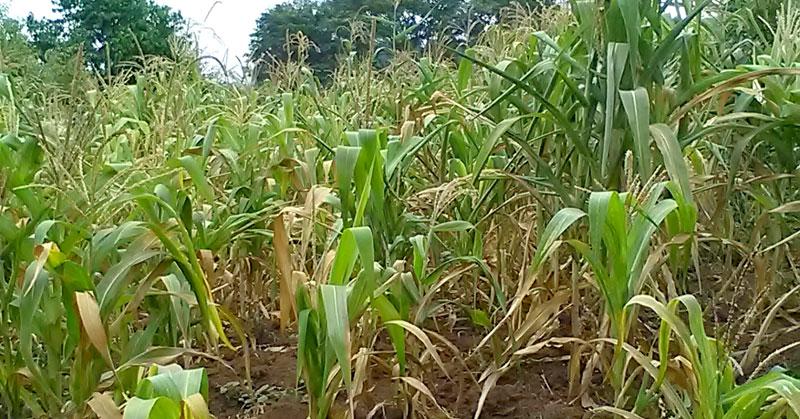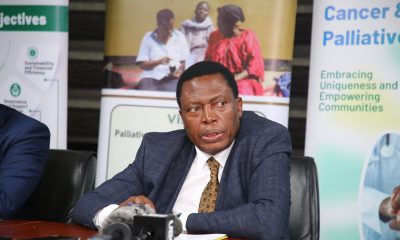News
Mind-set change a must for Uganda to avert climate change – FAO
The latest Food and Agriculture Organization (FAO) annual report on the state of global food and hunger has warned of serious dangers to global food production, especially in poor developing countries arising from climate change.
“The impacts of climate change on agriculture and the implications for food security are already alarming – they are the subjects of this report. A major finding is that there is an urgent need to support smallholders in adapting to climate change,” says FAO in the report titled: Climate change; Agriculture and Food Security,”
But the report points out that in order for countries, especially in Sub-Saharan Africa, to cope with the potentially dangerous effects of climate change, countries have to embrace climate resilient or climate smart technologies and practices.
Sadly however, the report points out, the rate of adoption of smart approaches among poor people such as in Uganda is still very low and this poses the greatest huddle to fighting climate change.
“Significant improvements in food security, as well as resilience to climate change can be achieved with the introduction of sustainable agricultural practices. Wide adoption of practices such as the use of nitrogen-efficient and heat-tolerant crop varieties, zero-tillage and integrated soil fertility management would boost productivity and farmers’ incomes, and help lower food prices.
“Despite this potential, the adoption by farmers of improved practices is still very limited. Often, adoption is hampered by policies, such as input subsidies, that perpetuate unsustainable production practices rather than those that promote resource-use efficiency.
But also in Uganda, negative attitudes among the people towards new agricultural technologies and approaches continue to cause low yields. For example, average mineral fertiliser use for Uganda is one of the lowest in the world. Limited fertiliser application, coupled with limited use of improved seeds and lack of irrigation among most small holder farmers in Uganda, are blamed for low levels of productivity in Uganda.
The report also cites the absence of other enabling factors such as limited access to markets, credit, extension advice, weather information, risk management tools and social protection, as other challenges frustrating the adoption of climate smart agricultural practices. Women’s inability to own land
The report also urges countries to take deliberate steps to transform their agriculture to make it climate friendly if they are to be able to produce enough food in the face of prolonged and sometimes unexpected droughts, floods which negatively impact on food production.
“Farmers, pastoralists, fisherfolk and community foresters depend on activities that are intimately and inextricably linked to climate – and these groups are also the most vulnerable to climate change.
Unless action is taken now to make agriculture more sustainable, productive and resilient, climate change impacts will seriously compromise food production in countries and regions that are already highly food-insecure. These impacts will jeopardize progress towards the key Sustainable Development Goals of ending hunger and poverty by 2030; beyond 2030, their increasingly negative impacts on agriculture will be widespread,”warns the report.
Ugandan researchers have developed hundreds of improved crop varieties over the past two decades which could greatly contribute towards increased food production. However, many of the improved technologies carry negative or derogatory connotations such as ‘Kawanda’ to imply they are unnatural.
But the latest FAO report shows that technologies such as nitrogen-efficient rice that is being developed, or the recently released drought tolerant maize [drought tego] hold a high place in increasing people’s resilience to climate change.
Other approaches suggested highlighted in the report as having a role to play in the face of climate change include heat tolerant crop varieties, integrated soil fertility management, use of irrigation and technologies that protect crops against pests and weeds are some of the suggested interventions that can be adopted.
Agricultural diversification, which can include raising birds and animals alongside crop farming or investing in agroforestry, have been cited as important options to manage future risks.
“One form of diversification is to integrate production of crops, livestock and trees – for example, some agroforestry systems use the leaves of nitrogen-fixing leguminous trees to feed cattle, use manure to fertilize the soil, and grow pulses to provide extra protein during periods of seasonal food insecurity,” notes the report.
If these alternatives are ignored, the world will not be able to achieve the sustainable development goals of ending hunger and global poverty by 2030.
“It will be difficult if not impossible, to eradicate global poverty and end hunger without building resilience to climate change in smallholder agriculture through the widespread adoption of sustainable land, water, fisheries and forestry management practices,”
Comments



















